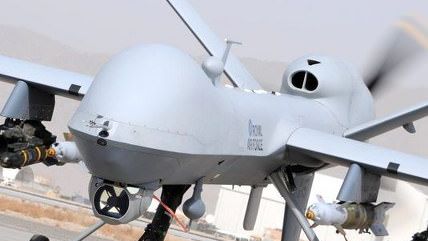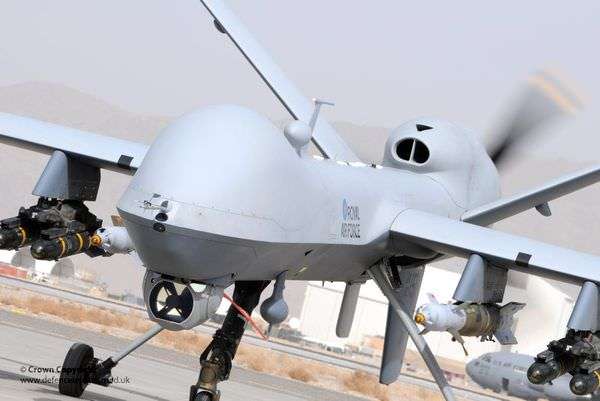Yemeni Engineer Begs Obama to Stop Murdering His Family with Drones


Last year, Salem Ahmed bin Ali Jaber, a respected Muslim cleric in Yemen, gave a speech denouncing al Qaeda. Representatives from Al Qaeda came to speak with Jaber and his cousin in a private meeting. During this meeting, they were all incinerated in a drone strike by the United States.
The New York Times reported the death of these two innocent civilians in February in the context of discussing John Brennan's nomination to head the CIA.
Yesterday President Barack Obama met with Yemeni President Abd-Rabbu Mansour Hadi. According to Reuters, Obama praised Hadi's participation in the war on terrorism, while Hadi apparently appreciated Washington's help reducing the power and presence of al Qaeda. If there was an mention of innocents killed as collateral damage, Reuters made no note of it.
Also yesterday, another drone strike killed four suspected al Qaeda operatives in the country. Perhaps someday we'll find out if they actually were al Qaeda operatives, not just suspects. Hopefully they weren't two al Qaeda operatives having a meeting with two unrelated civilians.
In any event, Jaber's brother-in-law, Faisal bin Ali Jaber, has written a letter, distributed by human rights group Reprieve, begging Obama and Hadi to stop killing innocents in these drone strikes and warning that they are making enemies of the very communities they claim to be trying to protect:
Why, then, last August, did you both send drones to attack my innocent brother-in-law and nephew? Our family are not your enemy. In fact, the people you killed had strongly and publicly opposed al-Qa'ida. Salem was an imam. The Friday before his death, he gave a guest sermon in the Khashamir mosque denouncing al-Qa'ida's hateful ideology. It was not the first of these sermons, but regrettably, it was his last.
In months of grieving, my family have received no acknowledgement or apology from the U.S. or Yemen. We've struggled to square our tragedy with the words in your speeches.
How was this "self-defense"? My family worried that militants would target Salem for his sermons. We never anticipated his death would come from above, at the hands of the United States. In his death you lost a potential ally – in fact, because word of the killing spread immediately through the region, I fear you have lost thousands.
How was this "in last resort"? Our town was no battlefield. We had no warning – our local police were never asked to make any arrest. My young nephew Waleed was a policeman, before the strike cut short his life.
How was this "proportionate"? The strike devastated our community. The day before the strike, Khashamir buzzed with celebrations for my eldest son's wedding. Our wedding videos show Salem and young Waleed in a crowd of dancing revellers, joining the celebration. Traditionally, this revelry would have gone on for days – but for the attack. Afterwards, it was days before I could persuade my eldest daughter to leave the house, such was her terror of fire from the skies.
He concludes:
With respect, you cannot continue to behave as if innocent deaths like those in my family are irrelevant. If the Yemeni and American Presidents refuse to engage with overwhelming popular sentiment in Yemen, you will defeat your own counter-terrorism aims.
Read the whole letter here.
In Pakistan today, Secretary of State John Kerry is being pushed to give an end date for drone strikes in the country.


Show Comments (56)